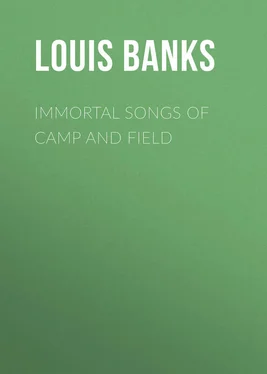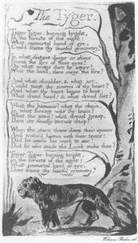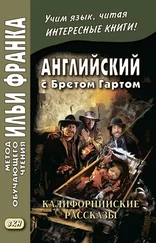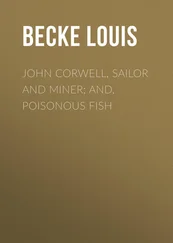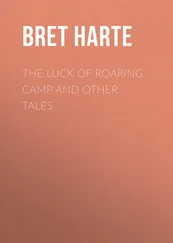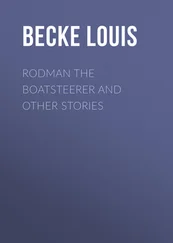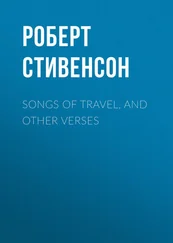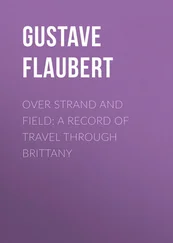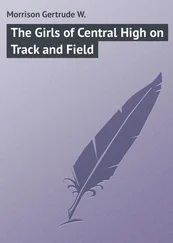Louis Banks - Immortal Songs of Camp and Field
Здесь есть возможность читать онлайн «Louis Banks - Immortal Songs of Camp and Field» — ознакомительный отрывок электронной книги совершенно бесплатно, а после прочтения отрывка купить полную версию. В некоторых случаях можно слушать аудио, скачать через торрент в формате fb2 и присутствует краткое содержание. Жанр: foreign_antique, foreign_prose, на английском языке. Описание произведения, (предисловие) а так же отзывы посетителей доступны на портале библиотеки ЛибКат.
- Название:Immortal Songs of Camp and Field
- Автор:
- Жанр:
- Год:неизвестен
- ISBN:нет данных
- Рейтинг книги:5 / 5. Голосов: 1
-
Избранное:Добавить в избранное
- Отзывы:
-
Ваша оценка:
- 100
- 1
- 2
- 3
- 4
- 5
Immortal Songs of Camp and Field: краткое содержание, описание и аннотация
Предлагаем к чтению аннотацию, описание, краткое содержание или предисловие (зависит от того, что написал сам автор книги «Immortal Songs of Camp and Field»). Если вы не нашли необходимую информацию о книге — напишите в комментариях, мы постараемся отыскать её.
Immortal Songs of Camp and Field — читать онлайн ознакомительный отрывок
Ниже представлен текст книги, разбитый по страницам. Система сохранения места последней прочитанной страницы, позволяет с удобством читать онлайн бесплатно книгу «Immortal Songs of Camp and Field», без необходимости каждый раз заново искать на чём Вы остановились. Поставьте закладку, и сможете в любой момент перейти на страницу, на которой закончили чтение.
Интервал:
Закладка:
Louis Albert Banks
Immortal Songs of Camp and Field / The Story of their Inspiration together with Striking Anecdotes connected with their History
THE AMERICAN FLAG
When Freedom, from her mountain height,
Unfurled her standard to the air,
She tore the azure robe of night,
And set the stars of glory there!
She mingled with its gorgeous dyes
The milky baldric of the skies,
And striped its pure celestial white
With streakings of the morning light;
Then, from his mansion in the sun,
She called her eagle bearer down,
And gave into his mighty hand
The symbol of her chosen land!
Majestic monarch of the cloud!
Who rear’st aloft thy regal form,
To hear the tempest trumpings loud,
And see the lightning-lances driven,
When stride the warriors of the storm
And rolls the thunder-drum of heaven!
Child of the sun! To thee ’tis given
To guard the banner of the free,
To hover in the sulphur smoke,
To ward away the battle stroke,
And bid its blendings shine afar
Like rainbows on the cloud of war,
The harbingers of Victory.
Flag of the brave! Thy folds shall fly,
The sign of hope and triumph high!
When speaks the signal trumpet tone
And the long line comes gleaming on
(Ere yet the life-blood warm and wet
Has dimmed the glistening bayonet),
Each soldier eye shall brightly turn
To where thy sky-born glories burn,
And, as his springing steps advance,
Catch war and vengeance from the glance.
And when the cannon mouthing cloud
Heaves in wild wreaths the battle shroud,
And gory sabres rise and fall,
Like shoots of flame on midnight’s pall;
There shall thy meteor-glances glow,
And cowering foes shall shrink beneath
Each gallant arm that strikes below
That lovely messenger of death.
Flag of the seas! On ocean wave
Thy stars shall glitter o’er the brave;
When death, careering on the gale,
Sweeps darkly round the bellied sail,
And frighted waves rush wildly back
Before the broadside’s reeling rack,
Each dying wanderer of the sea
Shall look at once to heaven and thee,
And smile to see thy splendors fly
In triumph o’er his closing eye.
Flag of the free heart’s hope and home,
By angel hands to valor given;
Thy stars have lit the welkin dome
And all thy hues were born in heaven!
As fixed as yonder orb divine,
That saw thy bannered blaze unfurled,
Shall thy proud stars resplendent shine,
The guard and glory of the world.
The author of The American Flag was born to poverty, but by hard work he obtained a good education, and studied medicine under Dr. Nicholas Romayne, by whom he was greatly beloved. He obtained his degree and shortly afterward, in October, 1816, he was married to Sarah Eckford, who brought him a good deal of wealth. Two years later, his health failing, he visited New Orleans for the winter, hoping for its recovery. He returned to New York in the spring, only to die in the following autumn, September, 1820, at the age of twenty-five. He is buried at Hunt’s Point, in Westchester County, New York, where he spent some of the years of his boyhood. On his monument are these lines, written by his friend, Fitz-Green Halleck, —
“None knew him but to love him,
Nor named him but to praise.”
Drake was a poet from his childhood. The anecdotes preserved of his early youth show the fertility of his imagination. His first rhymes were a conundrum which he perpetrated when he was but five years old. He was one day, for some childish offense, punished by imprisonment in a portion of the garret shut off by some wooden bars. His sisters stole up to witness his suffering condition, and found him pacing the room, with something like a sword on his shoulder, watching an incongruous heap on the floor, in the character of Don Quixote at his vigils over the armor in the church. He called a boy of his acquaintance, named Oscar, “Little Fingal;” his ideas from books thus early seeking embodiment in living shapes. In the same spirit the child listened with great delight to the stories of an old neighbor lady about the Revolution. He would identify himself with the scene, and once, when he had given her a very energetic account of a ballad which he had read, upon her remarking that it was a tough story, he quickly replied, with a deep sigh: “Ah! we had it tough enough that day, ma’am.”
Drake wrote The Mocking-Bird , one of his poems which has lived and will live, when a mere boy. It shows not only a happy facility but an unusual knowledge of the imitative faculty in the young poets of his time.
The American Flag was written in May, 1819, when the author was not quite twenty-four. It has remained unchanged except the last four lines. It originally concluded: —
“As fixed as yonder orb divine,
That saw thy bannered blaze unfurled,
Shall thy proud stars resplendent shine,
The guard and glory of the world.”
These lines were very unsatisfactory to Drake, and he said to Fitz-Green Halleck, “Fitz, can’t you suggest a better stanza?” Whereupon the brilliant author of Marco Bozzaris sat down and wrote in a glowing burst of inspiration the four concluding lines: —
“Forever float that standard sheet!
Where breathes the foe but falls before us?
With Freedom’s soil beneath our feet,
And Freedom’s banner streaming o’er us?”
Drake immediately agreed that these were a splendid improvement on the former ending, and incorporated them into his one poem that is certain of immortality. It was first published in the New York Evening Post , in a series known as the Croaker Pieces , The American Flag being the last one of the series.
The young poet was entirely free from vanity and affectation, and had no morbid seeking for popular applause. When he was on his deathbed, at his wife’s request, Doctor DeKay collected and copied all his poems which could be found and took them to him. “See, Joe,” said he to him, “what I have done.” “Burn them,” he replied; “they are valueless.”
Drake’s impulsive nature, as well as the spirit and force, yet simplicity, of expression, with his artless manner, gained him many friends. He had that native politeness which springs from benevolence – that would stop to pick up the hat or the crutch of an old servant, or fly to the relief of a child. His acquaintance with Fitz-Green Halleck arose in a romantic incident on the Battery one day when, in a retiring shower, the heavens were spanned by a rainbow. DeKay and Drake were together, and Halleck, a new acquaintance, was talking with them; the conversation taking the turn of some passing expression of the wishes of the moment, Halleck whimsically remarked that it would be heaven for him, just then, to ride on that rainbow and read Campbell. The idea was very pleasing to Drake. He seized Halleck by the hand and from that moment until his untimely death they were bosom friends.
ADAMS AND LIBERTY
Ye sons of Columbia, who bravely have fought
For those rights which unstain’d from your sires had descended,
May you long taste the blessings your valor has bought,
And your sons reap the soil which your fathers defended!
’Mid the reign of mild peace,
May your nation increase,
With the glory of Rome, and the wisdom of Greece.
And ne’er shall the sons of Columbia be slaves,
While the earth bears a plant, or the sea rolls its waves.
Интервал:
Закладка:
Похожие книги на «Immortal Songs of Camp and Field»
Представляем Вашему вниманию похожие книги на «Immortal Songs of Camp and Field» списком для выбора. Мы отобрали схожую по названию и смыслу литературу в надежде предоставить читателям больше вариантов отыскать новые, интересные, ещё непрочитанные произведения.
Обсуждение, отзывы о книге «Immortal Songs of Camp and Field» и просто собственные мнения читателей. Оставьте ваши комментарии, напишите, что Вы думаете о произведении, его смысле или главных героях. Укажите что конкретно понравилось, а что нет, и почему Вы так считаете.
